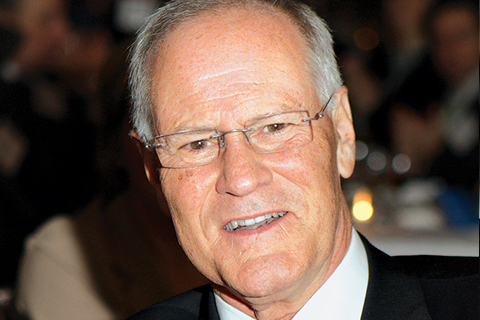The Hon. Bill Graham, who for two years represented Canada on the world stage as minister of Foreign Affairs, has made a major gift to Trinity College to support scholars of recent international history.
The $5-million gift to U of T’s Centre for Contemporary International History – the largest ever to Trinity – will allow the centre to expand, to forge academic partnerships abroad, and to bring diplomats, elected officials and others involved with public life to U of T to share their behind-the-scenes knowledge of international affairs.
The Centre for Contemporary International History – which examines global events since the Second World War – is a joint venture between Trinity College and the Munk School of Global Affairs. It was founded two years ago and has been renamed the Bill Graham Centre for Contemporary International History. Trinity College’s provost, Andy Orchard, called Graham “a true champion” of the University of Toronto and Trinity College, and said Graham’s vision and commitment will allow the new centre to flourish. Graham is Trinity’s chancellor.
Prof. John English, the first director of the new centre, says he hopes to build relationships with other universities around the world to facilitate scholar exchanges. He also plans to organize conferences on recent historical subjects important to Canadians, and launch internships for undergraduate students to assist with the centre’s research activities.
The gift announcement, in April, was made on the same day the centre hosted a conference about former prime minister Lester Pearson. The day-long event drew several well-known politicians, including former prime ministers Jean Chrétien and John Turner and interim federal Liberal leader Bob Rae. The Pearson government, elected in 1963, ushered in major reforms across Canada, such as the Canada Pension Plan, medicare and student loans – and unveiled a new flag. “[Pearson] lifted Canada into a new place in the world,” observed Graham.
During the conference, Graham (BA 1961 TRIN, LLB 1964) and Chrétien answered questions from the audience (which included many students). Chrétien talked about a range of issues, including his decision to tell former U.S. president George W. Bush that Canada would not join the war in Iraq in 2003. The former prime minister said he didn’t see enough evidence of weapons of mass destruction: “Not enough even to convince a municipal judge in Shawinigan” – Chrétien’s hometown, in Quebec.
English says Graham’s gift will enable the centre to do more of these thought-provoking conferences, with the goal of bringing history scholarship to a broader audience and, ultimately, inspiring students. “If this centre can do something to help lift our students into a new place in the world so that they contribute to making a better city, a better province, a better Canada – I will be grateful,” Graham said.
Recent Posts
People Worry That AI Will Replace Workers. But It Could Make Some More Productive
These scholars say artificial intelligence could help reduce income inequality
A Sentinel for Global Health
AI is promising a better – and faster – way to monitor the world for emerging medical threats
The Age of Deception
AI is generating a disinformation arms race. The window to stop it may be closing




